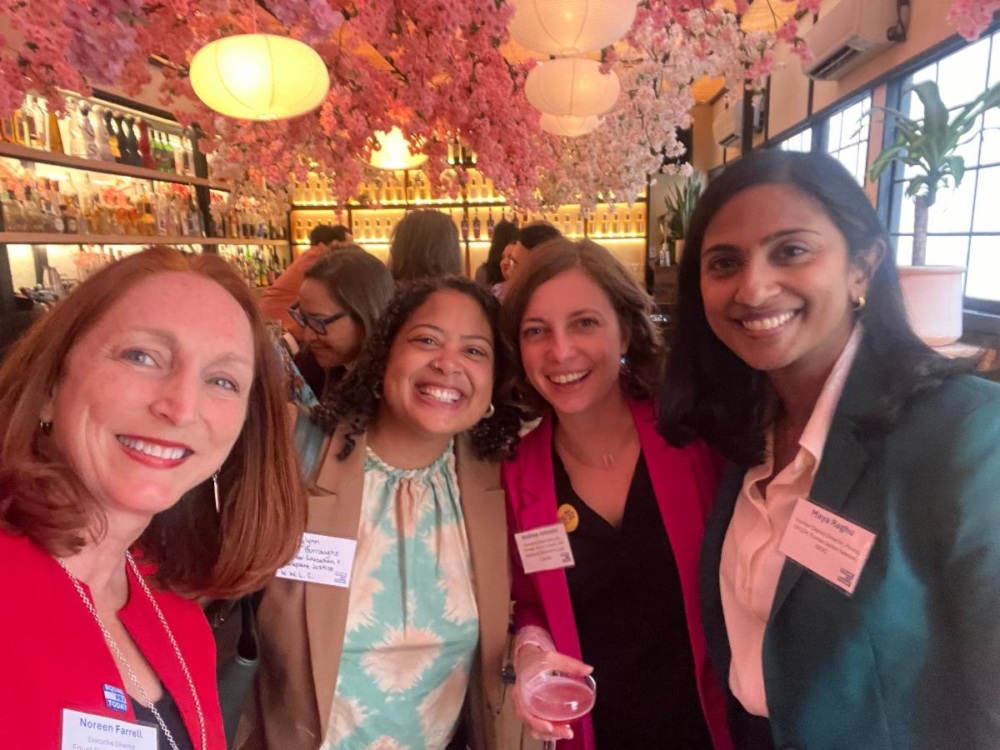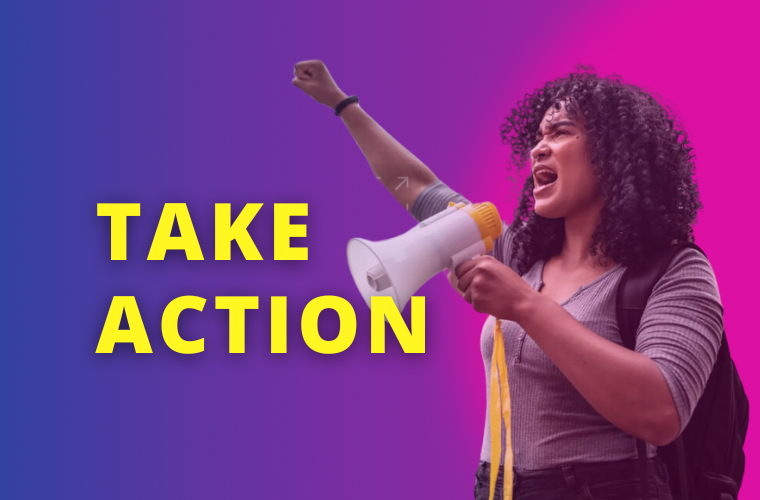

The Lesson of Juneteenth: A Freedom Deferred

By Delia Coleman, Deputy Director
"The federal recognition of Juneteenth is an opportunity to correct the lens through which our country views the history of freedom. But to me, a key component of freedom is access to the franchise: voting rights.
I’ve been thinking lately about the enfranchisement and disenfranchisement of Black people in our country, and how the dream of fully belonging to our national body is still delayed — not just for Black people, but also for queer people, First Nations/Indigenous people, immigrants, and other people of color.
Yesterday, Congress declared Juneteenth a federal holiday. While it’s important to celebrate this milestone, we also recognize that it’s long overdue. This type of recognition is inherent in Juneteenth’s significance: as Black people today celebrate the news of emancipation reaching enslaved people in Texas on June 19, 1865, we remember, as all Americans should, that freedom doesn’t take on meaning until we are able to fully exercise it.
That’s why I wish the Senate would have passed the For the People Act yesterday, instead, to protect voting rights. (Although obviously I would prefer both.)
“In backing away from protecting democracy, the Senate chose to preserve the unconscionable practice of gerrymandering… and with it, the legacy of a Black person’s vote literally counting less than a white person’s in this country.”
The past year has shown me how fragile our democracy is; I wish the Senate had chosen to protect fundamental voting rights and prioritize an emancipation that is supposed to come with true democracy, rather than choosing a bank holiday. It’s nice, but that’s not freedom. Instead, the Senate chose to allow continued and increased attacks on voting rights that harm communities of color the most. In backing away from protecting democracy, they chose to preserve the unconscionable practice of gerrymandering — which is as bad as it’s ever been in recent history—and with it, the legacy of a Black person’s vote literally counting less than a white person’s in this country.
It’s been exactly one year since the summer of cities, white folk, companies, and institutions nationwide acknowledging and beginning to protest the fact that violent racism is still baked into the fabric of U.S. society. And now, we’re seeing the vehement backlash of that acknowledgment via proposed legislation in at least 21 states aimed at denying institutional racism’s existence in public education and government training. We’ve seen a coordinated surge of attacks on the scholarly study of critical race theory; on educational programs that accurately depict our our country’s historical and continued legacy of discrimination against BIPOC. We’ve seen the undermining of government training programs that convey values of diversity, equity, and inclusion. These attacks on our aspirational values of equity and justice worries me more than whether I have a federal holiday.
“Essential industries will be open on Juneteenth, such as retail and transportation, where Black and Brown people hold a disproportionately high percentage of the service sector jobs and are grossly underpaid.”
I also can’t forget: while many of us (like the team at ERA) will get a paid day off for Juneteenth from now on, federal holidays aren’t observed by all industries. Essential industries will still operate, such as retail and transportation, where Black and Brown people hold a disproportionately high percentage of the service sector jobs and are grossly underpaid. These are the same workers who were forced to risk their lives and their families’ health on a daily basis for the past 15 months to keep us safe — while earning the minimum wage or, in the case of restaurant workers, a subminimum wage.
The federal recognition of Juneteenth is an opportunity to correct the lens through which our country views the history of freedom. But to me, a key component of freedom is access to the franchise: voting rights. This demands ending the Senate filibuster and passing the For the People Act.
This is the lesson of Juneteenth. It is without a doubt a day for me, as a Black person, to celebrate (and cookout) to honor our people’s commitment to our liberation. But it is also a day to incorporate the lessons of the past into our current acts of resistance, and our continued fight for the rights and freedoms that are owed to all of us.
Take action to honor Juneteenth today: Email or call your Senators about the For the People Act.
Stay Connected & Take Action
- Get the Latest News & Information Sign up for Email Updates
- Sign Up for Action Alerts Join the Action Team
- Follow Us


